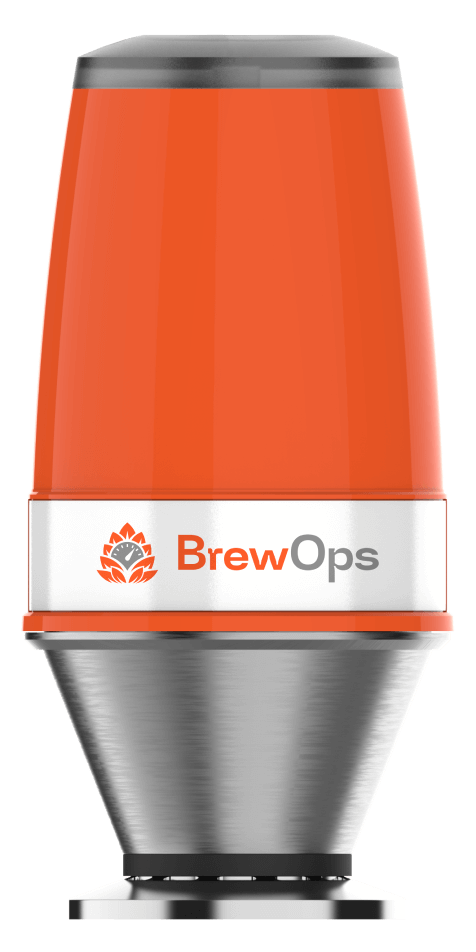Clean-in-place (CIP) is a crucial process in a craft brewery to maintain high standards of cleanliness and hygiene, ensuring the quality and safety of the beer produced. Here are some best practices for implementing clean-in-place procedures in a craft brewery:
Develop a Standard Operating Procedure (SOP): Establish a comprehensive SOP for the CIP process. This document should outline the entire cleaning process, including steps, chemical concentrations, contact times, equipment involved, and safety precautions.
Understand the Equipment: Thoroughly understand the design and specifications of the brewery equipment that will undergo the CIP process. Different equipment may require specific cleaning approaches and chemicals.
Pre-Rinse: Begin with a pre-rinse to remove any loose debris or residues. This helps in preparing the equipment for effective cleaning with the CIP solution.
Chemical Selection and Mixing: Choose appropriate cleaning chemicals based on the type of residues to be removed. Follow the manufacturer’s guidelines for mixing the chemicals to achieve the correct concentration for effective cleaning.
Temperature Control: Maintain the proper temperature of the cleaning solution as recommended by the chemical manufacturer. Temperature can significantly impact the effectiveness of the cleaning process.
Flow and Velocity Control: Ensure adequate flow rates and velocities of the cleaning solution through the system to reach all surfaces. Proper flow and velocity help in dislodging and removing residues effectively.
Contact Time: Adhere to the specified contact time for the cleaning solution. It’s important to allow enough time for the chemicals to break down and remove the residues.
Rinse Thoroughly: After the cleaning cycle, rinse the equipment thoroughly with water to remove any remaining cleaning solution and residues. Multiple rinses may be necessary to ensure no chemical traces are left behind.
Validate Cleaning Effectiveness: Regularly test the equipment surfaces for cleanliness to validate the effectiveness of the CIP process. Use appropriate methods such as swab testing or ATP (adenosine triphosphate) testing.
Record Keeping: Maintain accurate records of each CIP cycle, including details of chemicals used, concentrations, temperatures, contact times, and any deviations from the standard procedure. This documentation is crucial for traceability and quality control.
Employee Training: Train brewery staff on proper CIP procedures, safety protocols, and the importance of adherence to SOPs. Regular training and refresher courses should be conducted to keep the team updated on best practices.
Periodic Equipment Inspection and Maintenance: Regularly inspect the brewery equipment for any signs of wear, damage, or buildup that may hinder the CIP process. Address any maintenance needs promptly to ensure efficient cleaning operations.
By following these best practices, a craft brewery can maintain a high level of cleanliness and hygiene through effective clean-in-place procedures, ultimately contributing to the production of high-quality and safe beer.
Advantages of Automated CIP Processes at Craft Breweries
Automating the cleaning-in-place process at craft breweries offers several advantages that optimize CIP best practices and contribute to more efficient and effective cleaning routines.
Consistency and Precision: Automated CIP systems can ensure consistent and precise execution of the cleaning process. The equipment will follow predefined and standardized cleaning protocols every time, reducing the likelihood of human error and ensuring adherence to CIP best practices.
Accurate Chemical Dispensing: Automated systems can accurately measure and dispense cleaning chemicals according to the specified concentrations, ensuring the correct chemical balance for effective cleaning. This helps maintain the optimal chemical-to-water ratios required for a thorough cleaning.
Timed and Controlled Cleaning Cycles: Automated CIP systems can precisely control the timing and duration of each cleaning cycle. This ensures that the cleaning solution stays in contact with the surfaces for the recommended duration, maximizing its effectiveness in removing residues.
Real-Time Monitoring and Adjustments: Automated CIP systems often come with sensors and monitoring capabilities that allow real-time tracking of parameters like temperature, flow rates, and pressure. Any deviations from set parameters can trigger automatic adjustments, ensuring the cleaning process remains within optimal conditions.
Efficiency and Time Savings: Automation reduces the overall cleaning time by streamlining the process and minimizing manual interventions. This efficiency leads to shorter downtimes between brewing cycles, optimizing overall brewery production.
Water and Chemical Savings: Automated CIP systems can optimize the use of water and cleaning chemicals by controlling the amounts used based on the specific cleaning requirements. This not only reduces resource wastage but also aligns with sustainable and cost-effective practices.
Historical Data Analysis: Automated CIP systems can record and store historical data on the cleaning cycles. This data can be analyzed to identify trends, detect potential issues, and fine-tune the cleaning process for continuous improvement and enhanced efficiency.
Remote Monitoring and Troubleshooting: Some automated CIP systems offer remote monitoring capabilities, allowing brewery operators to oversee and manage the cleaning process from a central location. In case of issues or anomalies, adjustments or troubleshooting can be initiated remotely, minimizing disruptions and ensuring the CIP process stays on track.
Compliance and Documentation: Automation facilitates accurate and automated documentation of each cleaning cycle, ensuring compliance with regulatory and quality standards. Detailed records can be easily accessed and presented during inspections or audits.
Enhanced Safety: Automation can reduce the exposure of brewery staff to potentially hazardous chemicals and high-temperature cleaning environments. This contributes to a safer working environment and minimizes the risk of accidents.
Incorporating automation into the CIP process in breweries not only optimizes CIP best practices but also contributes to improved operational efficiency, cost savings, regulatory compliance, and ultimately, the production of high-quality, safe, and consistent beer.
Achieving and Maintaining CIP Compliance
Automating the cleaning-in-place (CIP) process in breweries significantly aids in achieving and maintaining compliance with CIP regulations and industry standards. Below we discuss how automation contributes to CIP compliance.
Consistent Adherence to Standardized Protocols: Automated CIP systems follow pre-set, standardized cleaning protocols precisely and consistently. This ensures that every cleaning cycle meets the established compliance requirements, minimizing the risk of deviations from the standard procedures.
Accurate Chemical Usage and Monitoring: Automation allows for precise measurement and dispensing of cleaning chemicals, ensuring that the correct concentrations are used according to regulatory guidelines. The system can monitor chemical usage in real-time, providing accurate records for compliance reporting.
Automated Recordkeeping and Documentation: Automated CIP systems maintain detailed and accurate records of each cleaning cycle, including parameters such as chemical concentrations, temperatures, cycle times, and equipment involved. This automated documentation simplifies compliance reporting and audits, providing a comprehensive and easily accessible record trail.
Real-time Monitoring and Alarming: Automated CIP systems often incorporate real-time monitoring and alarming features. If any critical parameter falls out of compliance during a cleaning cycle, the system can trigger alerts, allowing immediate corrective actions to be taken to prevent further non-compliance.
Verification of Cleaning Effectiveness: Automated systems can integrate testing mechanisms to verify the effectiveness of the cleaning process. This ensures that residues are adequately removed, meeting the compliance requirements for cleanliness and hygiene.
Adherence to Industry Standards: Automated CIP systems are designed to comply with industry standards and guidelines related to brewing equipment cleaning. By following these established standards consistently, the brewery demonstrates its commitment to industry best practices and compliance with regulatory requirements.
Data Traceability and Auditing: Automated CIP systems provide a traceable and auditable data trail, which is crucial for compliance purposes. The ability to trace and verify cleaning activities and parameters enhances the transparency and accountability of the brewery’s cleaning practices.
Reduced Risk of Human Error: Automation minimizes the risk of human error during the CIP process. With automated systems following precise protocols, the likelihood of deviations from compliance standards due to human mistakes is significantly reduced.
Periodic Reporting and Analysis: Automated CIP systems can generate periodic reports, trend analyses, and compliance summaries. These reports aid in reviewing CIP performance, identifying any trends or recurring issues, and making necessary adjustments to ensure continuous compliance.
Efficiency and Productivity Improvements: Automating the CIP process improves efficiency, which can indirectly contribute to compliance by ensuring that cleaning activities are completed within prescribed timelines, minimizing the risk of non-compliance due to delays.
By automating the CIP process, breweries can establish a systematic, standardized, and compliant cleaning approach, reinforcing their commitment to maintaining cleanliness, hygiene, and quality standards as mandated by regulatory bodies and industry best practices.
BrewOps Rinse Monitoring: Optimizing Your Cleaning-in-Place Process
BrewOps contributes to brewers automating their brewing operations, leading to cost efficiencies and the assurance of top-notch products. A specific application within the BrewOps suite, BrewOps Rinse, focuses on enhancing CIP efficiency—an innovative solution set to be released soon, so stay tuned for updates!
Craft breweries heavily rely on this comprehensive brewing operations management software, offering real-time monitoring, accessible dashboards, alerts, historical data analysis, remote oversight, data integration, and comprehensive reporting and documentation. Tailored for mobile usage, BrewOps provides portable, battery-powered devices enabling wireless monitoring of crucial brewing processes, offering immediate oversight and reliable real-time data.
How BrewOps Rinse Enhances Your Cleaning-in-Place Practices
For optimal craft brewery CIP practices, BrewOps Rinse is your go-to solution. BrewOps Rinse offers numerous advantages for your brewery’s cleaning processes, be it sanitation or equipment maintenance.
BrewOps Rinse assists operators in conserving water by indicating when the water leaving the tank is clean, prompting you to cease using fresh water. Breweries utilize various cleaning chemicals, and BrewOps Rinse informs you about correct chemical usage concerning concentration and consistency across tank cleanings. The conductivity levels fluctuate based on the cleaner type—caustic or acid-based. Consistency in each cleaning cycle is vital. Any substantial spikes or dips in conductivity signal excessive or insufficient chemical usage.
Moreover, BrewOps Rinse is invaluable for measuring in/out of heat exchangers, determining temperature variations, and identifying leaks based on conductivity changes.
A quick glance at BrewOps Rinse benefits:
- Significantly reduces water consumption
- Shortens CIP rinse times, leading to cost savings
- Enhances operator and product safety
- Promotes sustainability
- Increases CIP Compliance
Experience streamlined cleaning processes and resource efficiency with BrewOps Rinse—your reliable solution for optimizing the cleaning-in-place procedures in your brewery. And remember to ask us about our upcoming new product release that also helps optimize your clean-in-place processes!


